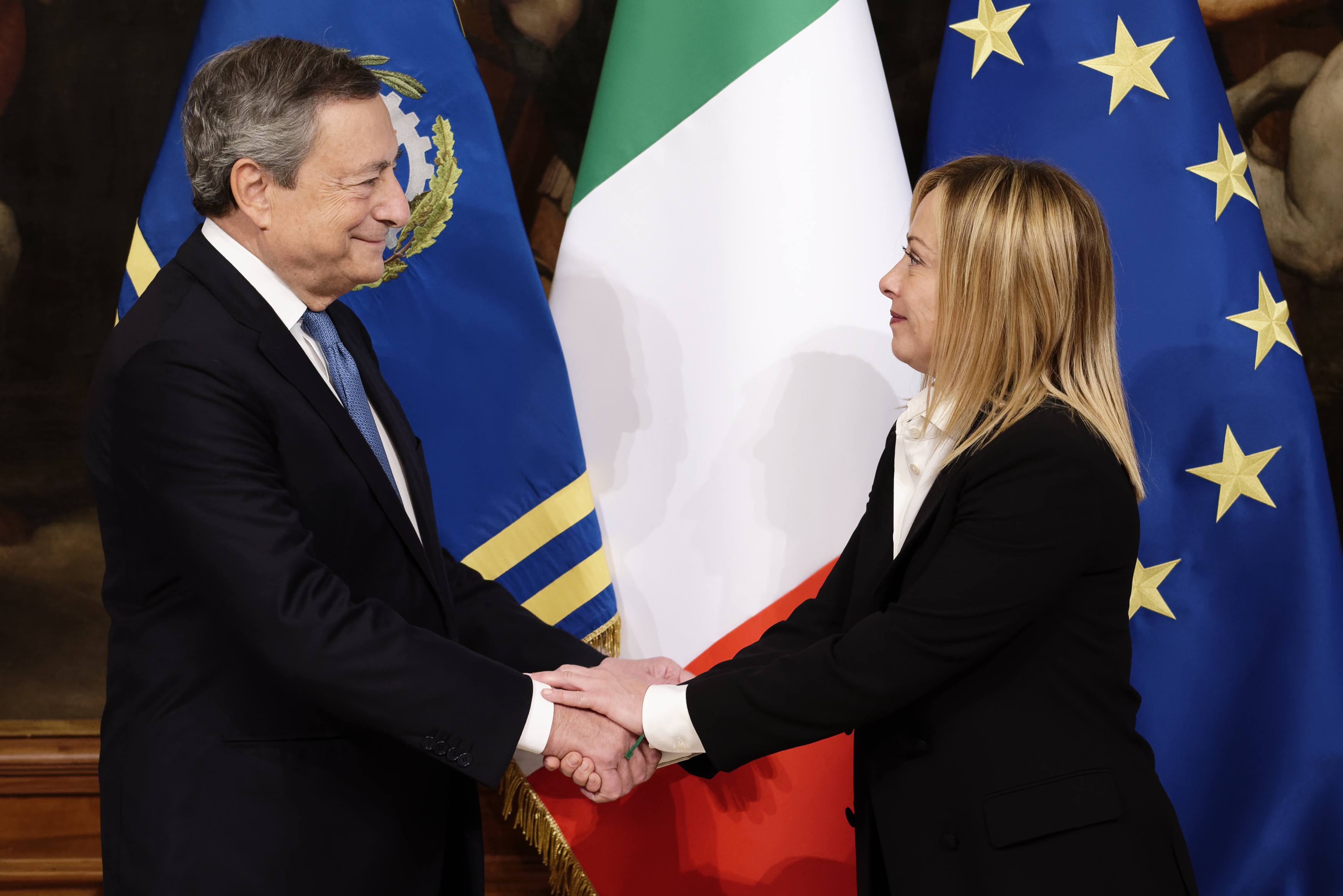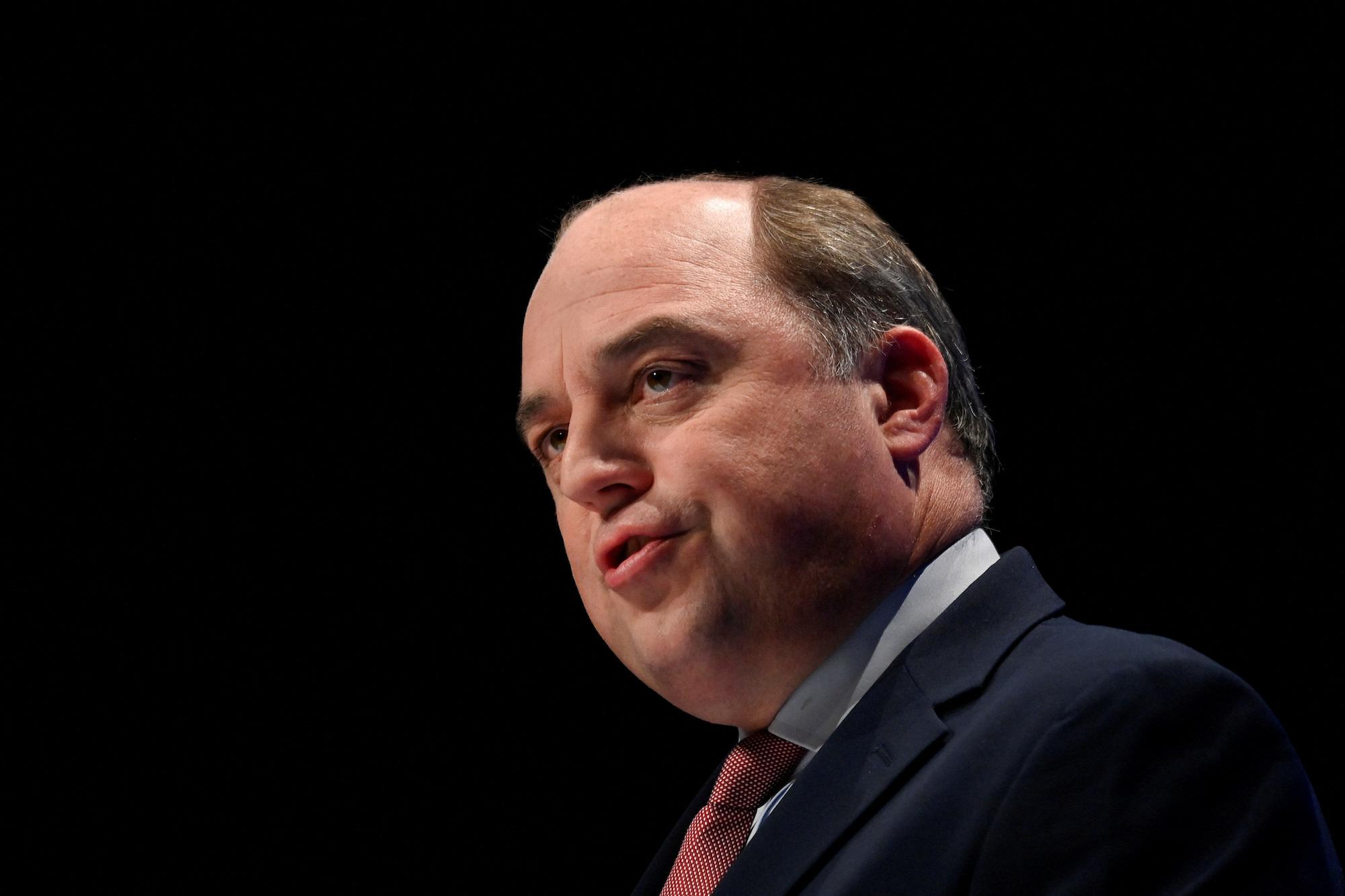Our live coverage of Russia's war in Ukraine has moved here.
October 23, 2022 Russia-Ukraine news
By Matt Meyer, Maureen Chowdhury and Mike Hayes, CNN
Russia's purported fears of Ukraine using a dirty bomb are "transparently false," US official says
From CNN's Barbara Starr and Natasha Bertrand
Russian defense minister Sergei Shoigu and US defense secretary Lloyd Austin spoke by phone Sunday, the second call in three days between the two top officials.
The Russian Ministry of Defense said the two discussed the situation in Ukraine but did not provide further details. It was Shoigu who initiated the phone call to Austin, according to a senior US administration official.
A second official familiar with the conversation said Shoigu alleged Ukrainians are planning to use a so-called dirty bomb — a weapon combining conventional explosions and uranium. That claim, which the Kremlin has amplified in recent days, has been strongly refuted by the US, Ukraine and United Kingdom as a Russian false flag operation.
Shoigu made similar comments to his French and British counterparts as well.
“We reject reports of Minister Shoigu’s transparently false allegations that Ukraine is preparing to use a dirty bomb on its own territory," National Security Council spokesperson Adrienne Watson told CNN in a statement. "The world would see through any attempt to use this allegation as a pretext for escalation.”
The US is also watching very closely for any intelligence that Russia has a specific plan to blow up a major dam near Kherson where Russia has ordered citizens to evacuate, the official said.
On Friday, Austin called Shoigu, the first call between the two in several months. Before Friday, the two had not spoken since May.
CNN's Jonny Hallam contributed to this report.
What will Italy's new hard-right government mean for the war in Ukraine?
From CNN's Valentina Di Donato, Ben Wedeman and Antonia Mortensen

Giorgia Meloni, who was sworn in as Italy’s first female prime minister Saturday, is set to form the most hard right government the country has seen in decades.
The new governing coalition includes two other right-wing leaders. One is Matteo Salvini, a hard-right former interior minister, and the other is Silvio Berlusconi, the center-right former Italian prime minister.
Both men have previously publicly expressed admiration for Russian President Vladimir Putin, which has prompted questions over what the coalition’s approach to Russia will be.
Just this week, secretly recorded audio was circulated in which Berlusconi appeared to lay the blame for Putin’s invasion of Ukraine at Kyiv’s door. He also boasted of having reestablished relations with the Russian leader.
A party spokesperson denied Berlusconi was in touch with Putin, saying he had been telling parliamentarians “an old story referring to an episode many years ago.” Berlusconi also defended his comments in an interview with Italian newspaper Corriere della Sera on Thursday, saying they had been taken out of context.
Amid backlash over the comments, Meloni, who has been a strong supporter of Ukraine as it battles Moscow’s invasion, sought to clarify where she and the coalition would stand once in power.
“I have and always will be clear, I intend to lead a government with a foreign policy that is clear and unequivocal. Italy is fully part of Europe and the Atlantic Alliance. Anyone who does not agree with this cornerstone will not be able to be part of the government, at the cost of not being a government. With us governing, Italy will never be the weak link of the West,” she said.
Nonetheless, liberals within Italy and the European Union are fearful of what the promised rightward turn may mean for the country and its future.
Ukraine repeats claim that Russia is interfering with grain shipments
From CNN’s Mariya Knight in Atlanta
Russia is intentionally slowing down food shipments made under the Black Sea Grain Initiative, the Ukrainian infrastructure ministry claimed Sunday.
The charge echoes complaints made earlier this week by President Volodymyr Zelensky.
“As previously reported, Russia is deliberately delaying the full implementation of the Grain Initiative," the Infrastructure Ministry wrote in a Facebook statement. "As a result, the ports have been operating at only 25-30% of their capacity in recent days.”
But the ministry also said “the bulk carrier PANGEO, chartered by the UN World Food Program (WFP), left the port of Chornomorsk” Sunday. The carrier is heading to Yemen carrying 40,000 tons of wheat.
The ministry said that since Aug. 1, "380 vessels have exported 8.5 million tons of agricultural products to the countries of Africa, Asia and Europe from the ports of Great Odesa.”
In an address on Friday, Zelensky said there were delays with ships delivering grain.
"The situation around the grain export initiative is becoming more and more tense these weeks," he said. "The enemy is doing everything to slow down our food exports. I believe that by these actions, Russia is deliberately inflaming the food crisis to make it as acute as it was in the first months of this year. Today, more than 150 vessels are in line to fulfill contractual obligations to supply our agricultural products ... It occurred only because Russia deliberately delays the passage of ships."
What the Russians are saying: The Grain Initiative was agreed upon in July by Ukraine, Russia, Turkey and the UN. But in recent weeks, Russia has complained that part of the agreement allowing for the export of its agricultural products and fertilizer, is not being upheld.
Gennady Gatilov, Russia’s ambassador to the UN in Geneva, said last week that Moscow could leave the deal, according to Reuters. Later, President Vladimir Putin weighed in, saying Russia would shut the export corridors if they are used to carry out “terrorist attacks.”
City near Zaporizhzhia power plant is "on the brink of a humanitarian catastrophe," mayor says
From CNN’s Mariya Knight
The Ukrainian city of Enerhodar is “on the brink of a humanitarian catastrophe," the city's mayor said Sunday.
Mayor Dmytro Orlov told Ukrainian media that repeated Russian strikes on his city prevent quick emergency and restoration work.
"Enerhodar is on the brink of a humanitarian catastrophe because constant enemy shelling destroys civilian infrastructure and power grids,” Orlov said. “The city remains without electricity and without water supply. Gas has not been available in most parts of the city for almost six months.”
The mayor also said the city has “a centralized heating system that has not been working since spring.”
The heating system depends on the nearby Zaporizhzhia Nuclear Power Plant, “several units of which are in cold shutdown mode, and several units are under repair,” Orlov explained.
“There are currently no prospects for starting a heating season, the city is in danger of not starting the heating season at all,” the mayor emphasized.
Freed Ukrainian women recount torture and other brutal treatment in Russian prisons
From CNN's Clarissa Ward, Brent Swails, Tim Lister and Scott McWhinnie

Hundreds of Ukrainian civilians have been imprisoned unlawfully in Russia since the start of the war, according to human rights groups.
The lucky ones are eventually used as bargaining chips in prisoner swaps. On Monday, 108 women, including 12 civilians, were released from captivity in Russia as part of one such swap.
Some of these Ukrainian women have alleged brutal mistreatment by their captors – including torture by electric shock and scalding. The Ukrainian state news agency Ukrinform interviewed one of them – naming her only as Hanna O. She is 26, Ukrinform says, and had served in the 36th Marine Brigade.
Hanna O. had been in the Azovstal steel plant in Mariupol but left when the Russians began bombarding it. She said she had spent just over six months in captivity. “They treated us like animals,” she told Ukrinform.
“They’d beaten the girls, they tortured the girls with electric currents, beaten them with hammers, that’s the lightest thing. They’ve hung them up.
“Those who had tattoos… they wanted to cut off our hands, cut off the tattoos, scalded us with boiling water just because you are there, because you are with the marines, because you speak Ukrainian,” she said.
International law is clear that civilians should be treated as protected persons and cannot be held as prisoners of war. The act of forcibly transferring Ukrainian civilians to another country is a war crime.
According to a Human Rights Watch Report in July, “International humanitarian law also prohibits hostage-taking. Detaining civilians for the purpose of using them in future prisoner exchanges would constitute the war crime of hostage-taking.”
"We're going to have to find balance": Republican lawmaker weighs in on aid for Ukraine
From CNN's Morgan Rimmer
In an interview Sunday, Republican Rep. Nancy Mace said lawmakers will need to "find balance" in aiding Ukraine as US President Joe Biden questions her party's commitment to helping combat the Russian invasion.
Mace, appearing on State of the Union, was asked by CNN's Jake Tapper whether she supported House Republican Leader Kevin McCarthy’s assertion that the GOP would not write a “blank check” to Ukraine if they are in the majority.
“It is something that we're going to have to find balance on next year,” she said, due to the threat of a recession and Republican promises to cut government spending.
"If we keep — keep writing these blank checks to other countries, if we increase the deficit spending or government spending any more than we already have, we're going to — we are going to exacerbate the situation," Mace continued. "But make no mistake. Ukraine is very important, not only to the United States economy, but to countries all around the world."
She said Russian President Vladimir Putin has “lost his marbles,” but argued McCarthy’s comments do not risk further emboldening him. Instead, she pointed at U.S. infighting as a whole.
“The divisions that we have, and unwilling to work together on some of these issues and just the fighting, it makes us look weak on the world stage,” she told Tapper.
Biden questions Republican commitment: Biden has seized on McCarthy's comments and similar remarks from some Republicans, framing the position as undermining US leadership in an increasingly volatile world.
"These guys don’t get it," Biden said at a fundraiser in Philadelphia Thursday. "It’s a lot bigger than Ukraine – it’s Eastern Europe, it’s NATO. It’s real, serious, serious consequential outcomes. They have no sense of American foreign policy.”
Ukraine and UK refute Russian claim that Kyiv and the West plan to escalate conflict
From CNN’s Allegra Goodwin and Dennis Lapin

British defense minister Ben Wallace on Sunday refuted claims by his Russian counterpart Sergei Shoigu that Ukraine was planning to escalate the conflict with help from Western countries.
Shoigu made the allegations in a call with Wallace, which the UK Defense Ministry said was held at the Russian Defense Ministry’s request. Wallace warned Shoigu that “such allegations should not be used as a pretext for greater escalation,” according to a statement from the ministry. Wallace “observed that both Ministers were professional and respectful on the call,” the statement added.
Shoigu warned Wallace of his concerns Ukraine would use a “dirty bomb,” against Russia, according to a Russian Defense Ministry statement.
Ukrainian Minister of Foreign Affairs Dmytro Kuleba vehemently dismissed the suggestion his country would use such a bomb — a weapon that combines radioactive material with conventional explosives.
“Russian lies about Ukraine allegedly planning to use a ‘dirty bomb’ are as absurd as they are dangerous. Firstly, Ukraine is a committed NPT (nuclear non-proliferation treaty) member: we neither have any ‘dirty bombs’, nor plan to acquire any. Secondly, Russians often accuse others of what they plan themselves,” Kuleba tweeted Sunday.
France's defense minister tells Russia escalation in Ukraine is not acceptable
From CNN's Pierre Bairin in Paris
French defense minister Sébastien Lecornu told his Russian counterpart Sergei Shoigu that Paris “refuses any form of escalation, especially nuclear” during a call Sunday.
“France calls on Russia to put an end to its war of aggression against Ukraine and to do everything possible to contribute to de-escalation,” Lecornu said, according to a readout of the conversation shared by France’s Ministry of the Armed Forces.
The statement added that French President Emmanuel Macron’s government is “determined to contribute to a peaceful resolution of the conflict” and that the French and Russian defense ministers would stay in contact.
Lecornu would be meeting his Ukrainian counterpart “shortly,” the statement concluded.





